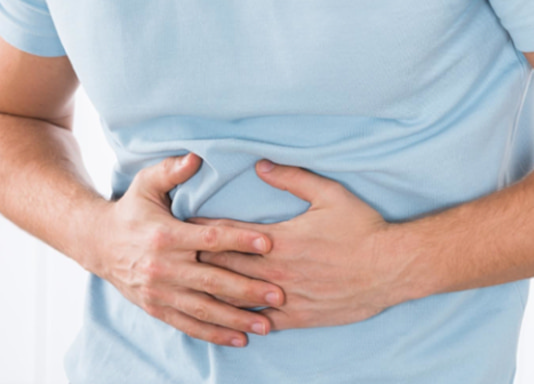Constipation, while common, is often surrounded by misconceptions that can hinder effective treatment. Understanding the truth about these myths is crucial for managing this condition properly. Here, we debunk some of the most widespread myths about Constipation Treatment in Dubai.
Myth 1: Everyone Needs to Have a Bowel Movement Every Day
One of the most persistent myths is that daily bowel movements are a marker of good health. However, bowel habits vary from person to person. Some individuals may naturally have three movements a day, while others may only have three a week. Both patterns can be normal as long as they don’t cause discomfort or indicate an underlying issue. Consistency and comfort, rather than frequency, are better indicators of a healthy digestive system.

Myth 2: Laxatives Are Unsafe and Cause Dependency
Another widespread belief is that laxatives are harmful or habit-forming. While improper or excessive use of laxatives can lead to dependency or other side effects, they are generally safe when used correctly. Various types of laxatives, including bulk-forming, osmotic, and stool softeners, address specific needs and can provide effective relief. Consulting with a healthcare provider ensures safe and appropriate usage, helping to avoid over-reliance or misuse.
Myth 3: Constipation Is Always Caused by Poor Diet
Although dietary habits, particularly low fiber intake, contribute significantly to constipation, they are not the sole cause. Factors such as stress, dehydration, lack of physical activity, medications, and underlying medical conditions like irritable bowel syndrome or hypothyroidism can also lead to constipation. Addressing these contributing factors is essential for effective management and treatment.
Myth 4: Drinking More Water Instantly Resolves Constipation
Staying hydrated is essential for overall health and can help prevent constipation, but it is not a standalone cure. Increasing water intake without adequate dietary fiber may not lead to regular bowel movements. Fiber adds bulk to the stool, and water works alongside it to soften and ease passage. Combining hydration with a balanced diet rich in fruits, vegetables, and whole grains is a more effective approach.
Myth 5: Over-the-Counter Remedies Are Always the Best Solution
Many assume that over-the-counter remedies, such as fiber supplements or stool softeners, are sufficient to treat all cases of constipation. While these remedies are effective for mild or occasional constipation, chronic or severe cases may require medical evaluation. Underlying issues like gastrointestinal disorders or other health conditions might necessitate specialized treatments.

Myth 6: Coffee and Alcohol Help Relieve Constipation
Caffeine in coffee is known to stimulate the digestive system for some people, but it is not a reliable treatment for constipation. Similarly, alcohol is often mistakenly thought to "flush out" the system, but it can actually dehydrate the body, worsening constipation. Moderation is key, and relying on these substances for digestive health is not recommended.
Myth 7: Physical Activity Has Little Impact on Constipation
Some believe that exercise has minimal effect on bowel regularity. On the contrary, physical activity plays a significant role in promoting healthy digestion. Regular movement stimulates intestinal contractions, aiding in stool passage. Even light exercises such as walking can make a difference in preventing and managing constipation.
Myth 8: Constipation Only Affects Older Adults
While older adults are more likely to experience constipation due to factors such as slower metabolism, reduced mobility, and medication use, it can affect people of all ages. Children, pregnant women, and even healthy adults can experience constipation due to dietary changes, stress, or other temporary disruptions in lifestyle.
Myth 9: All Fiber Is Equal
Not all fiber works in the same way to relieve constipation. Soluble fiber, found in foods like oats, fruits, and legumes, absorbs water and forms a gel-like substance, softening stools. Insoluble fiber, found in whole grains and vegetables, adds bulk and helps move stools through the digestive tract. Incorporating a mix of both types is key for maintaining bowel health.
Myth 10: Holding in a Bowel Movement Is Harmless
Delaying bowel movements can lead to hardened stools, making them more difficult to pass later. Over time, ignoring the urge to go can disrupt the body’s natural signals, potentially worsening constipation. Responding to these natural cues promptly helps maintain regularity and prevent discomfort.
Myth 11: Constipation Isn’t a Serious Issue
Many people dismiss constipation as a minor inconvenience, but chronic constipation can lead to complications such as hemorrhoids, anal fissures, or rectal prolapse. Additionally, it can sometimes signal underlying health conditions like colorectal cancer. Persistent symptoms warrant a medical evaluation to rule out serious concerns and ensure appropriate treatment.
Understanding these myths and the realities of constipation treatment can help individuals take proactive steps toward effective management. By combining accurate information with healthy lifestyle practices, constipation can often be alleviated or prevented altogether.
If you want to read more about Constipation Treatment:
